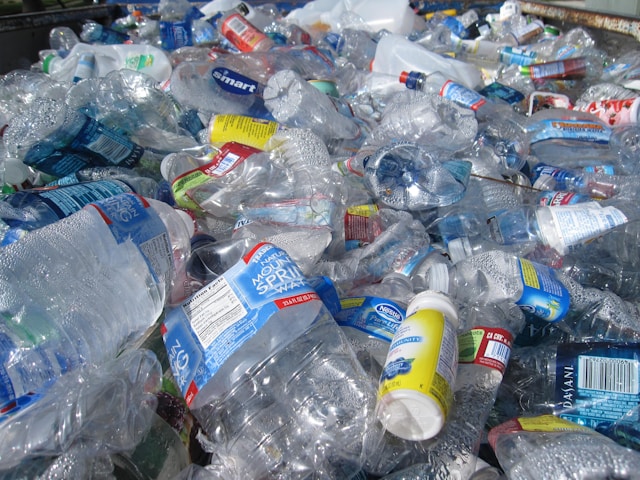From kitchenware and furniture to electronics, tools, and packaging, plastic has become a need of daily living in everything. Three primary features account for its appeal: adaptability, cost-effectiveness, and great durability. These make it appropriate for a range of uses.
Plastic waste has become a significant social and environmental issue in Nigeria. With roughly 2.5 million tons produced yearly, less than 12% of which is recycled, the nation ranks ninth worldwide in plastic pollution. States like Bayelsa, Katsina, Lagos, and Oyo account for the highest volumes, with Lagos particularly prone to flooding because of blocked drainage systems. Beyond environmental harm, burning plastics releases hazardous fumes that can cause respiratory problems.
Political science graduate Gegele Yahya Olushola established Premium Blue Economy in 2018, driven by growing unemployment, environmental deterioration, and Nigeria’s reliance on oil. Yahya aimed to solve waste, energy needs, and unemployment in a combined, sustainable manner inspired by Belgian businessman and economist Gunter Paulis’s idea of transforming trash into value.
Premium Blue Economies’ strategy combines renewable energy generation with waste management. Early in 2023, it started a major plastic recycling and gathering drive to lessen environmental risks. The business established collection points with cash rewards for gathered plastics in association with waste pickers and local groups to encourage participation.
Pyrolysis is another process used by the company to turn gathered plastics into diesel fuel. By diverting waste from landfills and generating a usable energy source, this process solves Nigeria’s recurrent fuel crises in addition to reducing landfill volume. While the project creates more than 1,000 employment in waste collection, processing, and distribution, it now yields over 120,000 liters of diesel every month.
Yahya emphasizes that scalability depends on constant stakeholder participation, flexible technical solutions, and policy advocacy to guarantee long-term sustainability of this model. The business uses a systems-thinking strategy to see how public health improvements, energy generation, job creation, and waste reduction are all related.
Beyond environmental benefits, Premium Blue Economy seeks to change society’s view of waste from a nuisance into a resource. Yahya dreams of a Nigeria whereby regional towns have better living conditions, consistent income, and cleaner surroundings. He hopes to show Nigeria as a world leader in sustainable waste management by showing how waste can drive economic development, therefore inspiring other developing nations.
Yahya says we want to encourage a culture where creativity fuels inclusive growth and sustainability is fundamental to development. Solving Nigeria’s trash problem can simultaneously address environmental deterioration, unemployment, and energy shortage—turning a countrywide catastrophe into a chance to get ahead.




